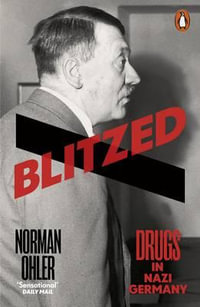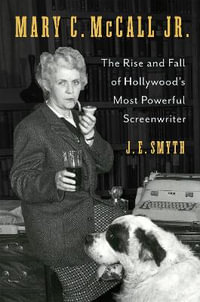This imaginative and unusual book explores the moral sensibilities and cultural assumptions that were at the heart of political debate in Victorian and early twentieth-century Britain. It focuses on the role of intellectuals as public moralists, and suggests ways in which their more formal political theory rested upon habits of response and evaluation that were deeply embedded in wider social attitudes and aesthetic judgements. Stefan Collini examines the characteristic idioms and strategies of argument employed in periodical and polemical writing, and reconstructs the sense of identity and of relation to an audience exhibited by social critics from John Stuart Mill and Matthew Arnold to J. M. Keynes and F. R. Leavis. Dr Collini begins by situating the leading intellectuals in the social and political world of the Victorian governing classes. He explores fundamental values like 'altruism', 'character', and 'manliness', which are revealed as the animating dynamic of much of the political thought of the period.
The book assesses the impact of increasing academic specialization across a range of disciplines, and offers an illuminating analysis of the public voice of legal theorists like Maine and Dicey. Through a detailed study of J.S. Mill's posthumous reputation Dr Collini uncovers the process by which the genealogy of images of national cultural identity is established; and he concludes with a provocative exploration of the nationalist significance of what he calls 'the Whig interpretation of English literature'. Public Moralists is a subtle and illuminating study by a leading intellectual historian which will redirect debate about the distinctive development of modern English culture.
Industry Reviews
`Cultural assumptions behind "manliness" and mountain-climbing, the significance of new disciplines like legal studies and anthropology, and the professionalization of the don are woven brilliantly into profile of the Victorian intelligentsia.' Roy Foster, The Independent on Sunday
`dense, knotty and vastly entertaining' Roy Foster, The Irish Times
`a sophisticated, witty and thoughtful historian of ideas ... a fertile and gifted author ... He treats the "great" figures with insight and panache.' Times Higher Education Supplement
`[Collini is] one of Cambridge's brightest stars ... the pace is easy, entertaining and erudite ... Dr Collini's book has many merits. It moves easily between literary criticism and technical history. It takes an enlarged view of what constitutes literature, as did the Victorians. ... his book may influence intellectual history even more by method than content.' John Vincent, Times Literary Supplement
`This is an artfully crafted collection of essays in which Stefan Collini probes the richness of Britain's cultural past in a voice that speaks to a multiplicity of disciplines. The author is an essayist par excellence.' James E. Crimmins, Political Studies (1992), XL
'This is an extremely impressive discussion by one of our most distinguished commentators on Victorian intellectual life, but one may hope, greedily, that it proves to be a prolegomenon to a definitive historical work.' J.P. Parry, History Workshop Journal, Vol. 33, Spring 1992
'a provocative inquiry into the political thought of Victorian intellectuals ... students of the period will want to read it'
Reba N. Soffer, California State University, American Historical Review, December 1992
'Collini displays a skill and facility with language that renders the book untroubled reading. His detailed knowledge of Mill, in particular, produces a refreshing reassessment of Mill's central role in Victorian thought.'
Michael Freeden, Mansfield College, Oxford, EHR, Oct. '92
'only the dullest appetites could fail to appreciate the richly and piquantly prepared intellectual feast ... It is a distinguished work by a distinguished cultural historian.'
Bruce Kinzer, University of North Carolina at Wilmington, Victorian Studies Association of Ontario Newsletter, No. 51, Spring '93
'perceptive analyses ... Anyone familiar with Collini's writing will correctly anticipate that this book is never boring. Hardly a page is without an instance of potent and surprising image, blending acuteness and admiration - or asperity - in a solvent of wit. No one should come away untouched by Collini's rare ability to explain what one knew but had not bothered to understand. This is a book to be read once and again, and recommended - but not lent - to
student and colleague alike.'
John M. Robson, Massey College, University of Toronto, Albion, Winter '92, Vol. 24, No. 4
'Collini ... performs a valuable interdisciplinary service by bringing to bear his talents and training as a historian upon the discipline of English literature ... excellent book'
Christopher Kent, University of Saskatchewan, History of European Ideas
'This is an unusual, sophisticated, and valuable book ... All those interested in forms of public debate in modern Britain - not just intellectual but also political historians - will find stimulation here, if only by implication or association.'
Philip Williamson, University of Durham, Parliamentary History
'very learned and ambitious book ... exemplary book ... an excellent book which adds an insightful dimension to our knowledge of persons and ideas in Victorian England'
Louis B. Zimmer, Montclair State College, Victorian Studies, Fall 1992
'His field of reference is wide-ranging .. an agreeable, learned, interesting volume, full of pregnant ideas and replete with valuable information.'
S.J.D. Green, History No. 252, February 1993
'This is a fine and well-crafted piece of scholarship, displaying mastery of a very wide range of material. The language throughout is clear, vigorous and characteristically witty. Collini's excellent and stimulating book not only feeds and enlightens, it is a pleasure to read.'
Peter Nicholson, University of York
























